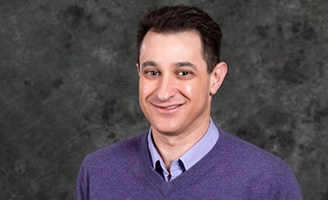


As the state Supreme Court gets ready to consider the fate of the sloppily vetoed grocery-tax repeal legislation, it’s increasingly apparent that Idaho’s constitution contains a major defect. That defect allows too much power to be concentrated in the hands of the governor and silences the voices of the people’s representatives in the Legislature.
The defect in question stems from the fact that there is no mechanism in the state constitution to override a governor’s veto after the Legislature has adjourned for the year. As Sen. Steve Vick, R-Dalton Gardens, pointed out in a recent op-ed, in practical terms, this defect has a real impact on Idahoans and their ability to hold jobs, protect private property and keep more of their earnings. And it’s a problem that is increasing in significance.
As Idaho Freedom Foundation research analyst Phil Haunschild recently discovered, a post-legislative session veto was rare in the state’s formative years, but it has become ubiquitous over the last decade or so. For example, in 1915, 1917, 1921, 1923 and 1925, not a single veto was issued following the legislative session.
Today, it’s as likely as not that a gubernatorial veto will come after lawmakers have returned home for the year. As lawmakers reserve their most pressing, most controversial or most complex legislation to the final days of a session, it is almost expected that rather important bills—as was the case this year with the grocery tax repeal, occupational licensure reforms, and civil asset forfeiture legislation—will fall victim to a gubernatorial veto.
Only the governor of Idaho can call the Legislature back into session, and he’s unlikely to do that in order to have the Legislature second-guess him on his decision to reject the Legislature’s work. Other states give lawmakers the power to call a special session, and that power can be used to reconsider bills passed by the Legislature and rejected by the governor. Still, other states have an automatic veto-override session so legislators can at least evaluate the governor’s actions.
In recent years, Vick twice proposed a constitutional amendment that would allow lawmakers to be called back into session upon agreement of the House speaker and Senate pro tem. Vick’s idea won the support of the Senate -- both times-- but died for lack of consideration in the House on each occasion. Vick’s proposal is a step in the right direction, although it arguably concentrates too much power in the hands of legislative leaders, who might still refuse to call a special session in order to protect a sitting governor from the embarrassment of having a veto overridden.
Under Idaho’s existing system, we don’t have two equal branches of government in the Legislature and the Executive. Once the Legislature has adjourned, the branch of government that represents the will of the people is rendered powerless, toothless, inconsequential and impotent. Such a serious imbalance begs the Legislature to act, to make it a priority to pass a veto-override amendment to the state constitution for consideration by the voters in 2018.


